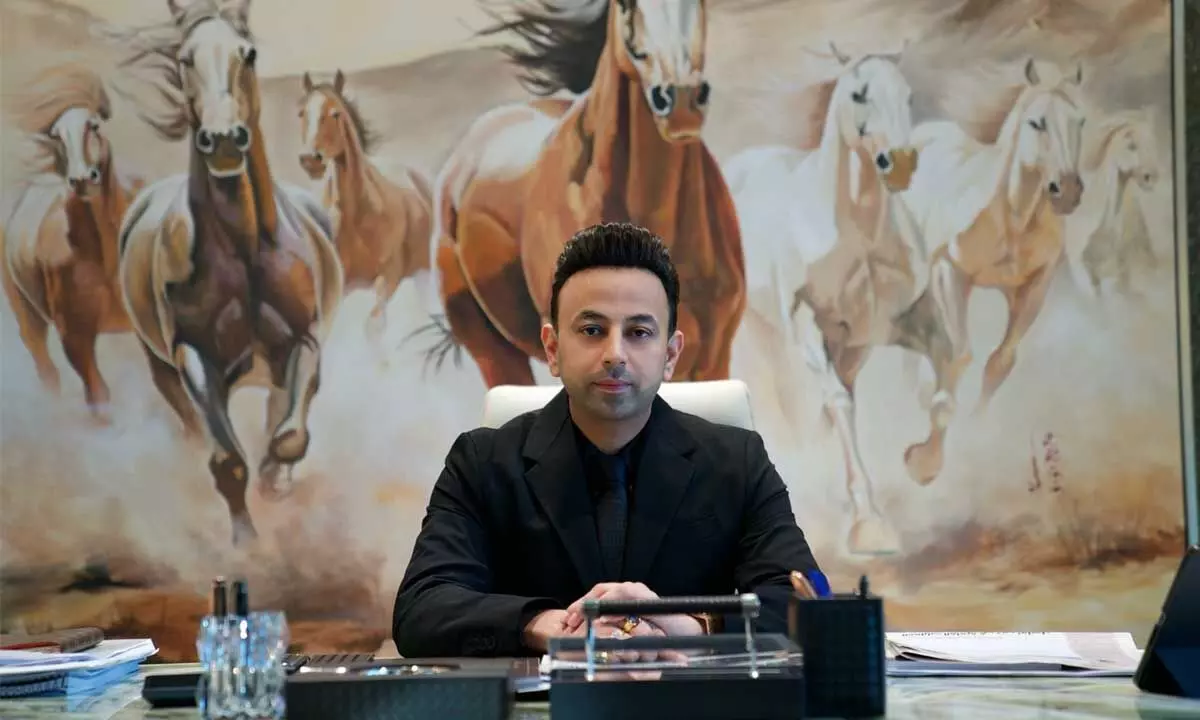Virtual Reality and Augmented Reality reshaping Dubai's real estate industry

With Dubai always at the forefront of innovationknown for its ambitious architectural marvels and futuristic vision, virtual reality (VR) and augmented reality (AR) technologies have started revolutionizing the real estate industry in the city.
With Dubai always at the forefront of innovationknown for its ambitious architectural marvels and futuristic vision, virtual reality (VR) and augmented reality (AR) technologies have started revolutionizing the real estate industry in the city. These cutting-edge tools are transforming how developers, agents, and buyers engage with properties, making the process more efficient, immersive, and transparent.
Exploring homes without leaving yours
One of the most significant ways VR is reshaping the real estate industry is through virtual property tours. Traditionally, prospective buyers had to visit multiple properties in person, which could be time-consuming and stressful. With VR, buyers can now explore homes from the comfort of their own homes, regardless of where they are in the world.
These immersive tours allow potential buyers to navigate through rooms, view the layout, and even experience the ambiance of a property as if they were physically present. This is particularly beneficial in Dubai’s real estate market, where many international buyers may not have the time or opportunity to travel for multiple site visits.
Pre-construction property visualization
Dubai is known for its constant flow of new projects, many of which are sold before construction is complete. This poses a challenge for buyers who need to visualize a property that doesn’t exist yet. AR comes to the rescue in this situation.
AR allows developers to overlay digital models of future properties onto physical environments, giving buyers a clear idea of what their future home will look like. Instead of relying on static floor plans or 3D renders, prospective homeowners can use AR to walk through a space that’s still under construction. They can even customize design features like flooring, wall colors, and furniture placement, offering a highly personalized buying experience.
Streamlining decision-making with interactive elements
VR and AR don’t just enhance visualization; they also help streamline the decision-making process. Developers in Dubai are increasingly using interactive AR apps to allow buyers to explore floor plans in real-time. For example, an app could let users select different layout options, furniture styles, or finishes, immediately updating the visualization to reflect these changes.
This not only speeds up the decision-making process but also makes it more enjoyable for buyers. They can play around with different configurations and see how their choices affect the final product. This level of interactivity adds value to the customer experience and makes it easier for them to picture themselves living in the space.
Moreover, in an increasingly competitive real estate market like Dubai’s, marketing is key. Developers are leveraging VR and AR to create compelling marketing experiences that draw in potential buyers. Virtual reality showrooms and AR-enhanced brochures provide a wow factor that traditional methods don’t match.
For example, rather than simply handing out a pamphlet, an agent might offer potential buyers an AR app where they can scan the brochure and see the property come to life. Or, VR booths at property exhibitions allow visitors to take instant virtual tours of multiple projects, helping them make quicker decisions on what interests them.
This tech-powered marketing approach appeals especially to Dubai’s international investors, as they can explore properties remotely. Instead of waiting to fly in for a physical visit, investors can make informed decisions through the immersive experiences provided by VR and AR.
Saving costs and time for developers
For developers, the adoption of VR and AR isn’t just about impressing buyers—it’s also about improving efficiency. Traditional property development processes require significant investment in physical showrooms, model homes, and printed marketing materials. VR and AR reduce or at the very least eliminate many of these costs by offering a digital alternative.
Additionally, these technologies help shorten sales cycles. With virtual tours and interactive elements, buyers can make decisions more quickly. They don’t have to wait to schedule in-person visits or spend hours reviewing design options; everything is at their fingertips. This efficiency benefits both buyers and sellers, reducing friction in the sales process and speeding up transactions.
Virtual reality and augmented reality are changing the way Dubai’s real estate industry operates. From virtual tours to interactive customization, these technologies are improving the buying experience, making it faster, more transparent, and more enjoyable. At the same time, developers are benefiting from cost savings and shorter sales cycles.As these technologies continue to evolve, it’s likely that their role in Dubai’s real estate market will only grow. For anyone involved in Dubai’s real estate industry, embracing VR and AR is not just an option—it’s the future.
By Satish Sanpal, Chairman, ANAX Holding








